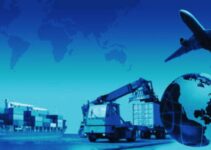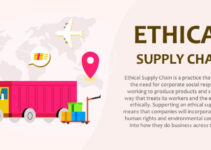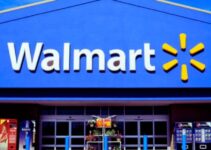Uniqlo is a fashion, apparel, and clothes Japanese multinational company. The retail clothing brand started its business in 1984. Today, we’ll discuss the value chain analysis of Uniqlo supply chain analysis; primary and supporting activities in the process of value chain analysis Example Company. They are inbound and outbound logistics, operations, marketing, and customer service; infrastructure, HRM, technology, and procurement as an application of the value chain analysis process.
Suppliers and Manufacturers of Uniqlo
- TM Textile & Garments
- Paramount Textile
- Changshu Shun Rui Needle
- Hangzhou Fuen
- Jiangyin Fubo Textile
- Nantong Tongzhou Xianfeng Huayuan Yam Dyed Fabric
- Pacific Panyu Textile
- Zhejiang Saintyear Textile
- Ramatex Printing Garments Suzhou
- Dongguan Texwinca Textile & Garments
- Auro Textiles
- PT Gistex
The Value chain analysis of Uniqlo supply chain analysis would analyze the primary and supporting activities in the process of value chain analysis. They’re inbound and outbound logistics, operations, marketing, and services; infrastructure, HRM, technology, and procurement. Here’s supply chain analysis of Uniqlo value chain analysis company example as follows;
Value Chain Analysis of Uniqlo
Let’s discuss the primary and supporting activities involved in the process of value chain analysis of Uniqlo supply chain analysis. It is an application of value chain analysis based on Porter’s model; some of the key elements and components of value chain analysis are as follows;
Primary Activities of Uniqlo
The primary activities are directly involved in the production of products and goods and adding value to the retail clothing and fashion company. Some of the five main primary activities in the value chain analysis of Uniqlo supply chain analysis are as follows;
Inbound Logistics of Uniqlo
I-Suppliers Network
Uniqlo has a very large material suppliers network comprising approximately 220 suppliers in various countries across the world. They’re in countries like; Bangladesh, China, Vietnam, Thailand, Turkey, South Korea, Portugal, Peru, Malaysia, Japan, Italy, Indonesia, and India. The large and worldwide network of suppliers and material manufacturing partners would help the company to ensure the smooth availability of raw supplies for production.
II-Relationships with Suppliers
Uniqlo has established a very good and effective relationship with suppliers and partners by offering them training and support to improve their skills and expertise. In fact, the company closely collaborates with them and guides them to develop safe working conditions and develops top-quality clothes.
The clothing brand Uniqlo has set up a strict code of conduct for suppliers and regularly monitors their workplace environment to ensure their compliance with the company’s standards. It focuses on the following areas;
- Interviewing employees and cross-checking their statements
- Making sure the health and safety of workers and employees
- Safe working conditions and the environment
- Standard working hours and the compensation plan
Outbound Logistics of Uniqlo
Uniqlo employs various transportation and 3rdparty logistics service providers like USPS, FedEx, and others for the transportation and distribution of products and goods. They move raw supplies, materials, and components from the verified suppliers to the production and manufacturing factories, warehouses, and distribution centers, and then to the retail stores and the end consumers.
Operations of Uniqlo
I-Production & Manufacturing Factories
Uniqlo doesn’t own any production and manufacturing, rather it outsources all of its production and manufacturing works. According to an estimate, the retail clothing brand has approximately 146 production and manufacturing partners in Indonesia, India, Bangladesh, China, and Vietnam. They help the company to keep up with the growing demand of the customer market.
II-Warehouses & Distribution Centers
Uniqlo has automated warehouses and distribution centers. They receive finished goods from the production and manufacturing factories; temporarily store, package, and label them before shipping them to the required chain stores of the company.
Marketing & Sales of Uniqlo
I-Marketing & Advertisement
Uniqlo runs various types of marketing and advertisement campaigns for the promotion of retail fashion clothes and brands. The company employs various media channels to approach the target segments of the customer market and increase its sales.
II-Retail Chain Stores
Uniqlo has a network of approximately 2400 retail chain stores in various countries across the world. The worldwide network of chain stores would the company to directly connect with the end consumers and offer its retail fashion clothes and apparel to them. It allows them to physically check the quality, design, and style of the apparel before buying it.
Services of Uniqlo
Uniqlo offers a wide range of retail fashion apparel products and services to the targeted customers. The additional services help the company to improve the customer satisfaction level and promote brand loyalty. Some of the main services of the company are as follows;
- Unique designs and styles
- Online shopping
- Delivery service
- Better in-store experience
Supporting Activities of Uniqlo
Supporting activities are indirectly involved in the production of products and goods and adding value to the fashion and clothing company. Some of the main supporting activities in the value chain analysis of Uniqlo supply chain analysis are as follows;
Infrastructure of Uniqlo
Uniqlo has established a very large infrastructure of production and manufacturing factories, retail chain stores, warehouses, distribution centers, and suppliers and distributors network. The well-established infrastructure helps the company to smoothly perform its various operations and timely deliver the finished retail apparel to the end consumers.
HRM of Uniqlo
Uniqlo has employed approximately 30000 employees to manage its global operations. The human resource management department of the company plays a key role in building a large database of workers, conducting training programs for employees and suppliers, allocating the workforce in various places, and offering equal employment opportunities to all regardless of any differences.
Technological Development of Uniqlo
Uniqlo invests a significant amount of capital resources in research and technological development. It allows the company to develop unique fashion designs and styles, automation technology in its warehouses and distribution centers, AI, and machine learning. However, it allows the company to achieve efficiency in its production and manufacturing processes and reduce the operational cost.
Procurement of Uniqlo
Uniqlo is highly careful about material procurement from various suppliers and vendors. The company regularly monitors and evaluates its suppliers and stores to ensure their compliance with human rights standards and the company’s requirements.
Conclusion: Uniqlo Value Chain Analysis Example Company | Application of Value Chain Analysis Process |Process of Value Chain Analysis
After an in-depth study of the value chain analysis of Uniqlo; we have realized that Uniqlo is the world’s leading retail chain fashion apparel and clothing brand. If you are learning about the Uniqlo value chain analysis example company; then you should keep in mind the abovementioned primary and supporting activities. They’re inbound and outbound logistics; operations, marketing and sales, and services; infrastructure, procurement, HRM, and technological development as an application of the value chain analysis process.
Ahsan is an accomplished researcher and has a deep insight in worldly life affairs. He goes Live 3 days a week on various social media platforms. Other than research writing, he’s a very interesting person.


